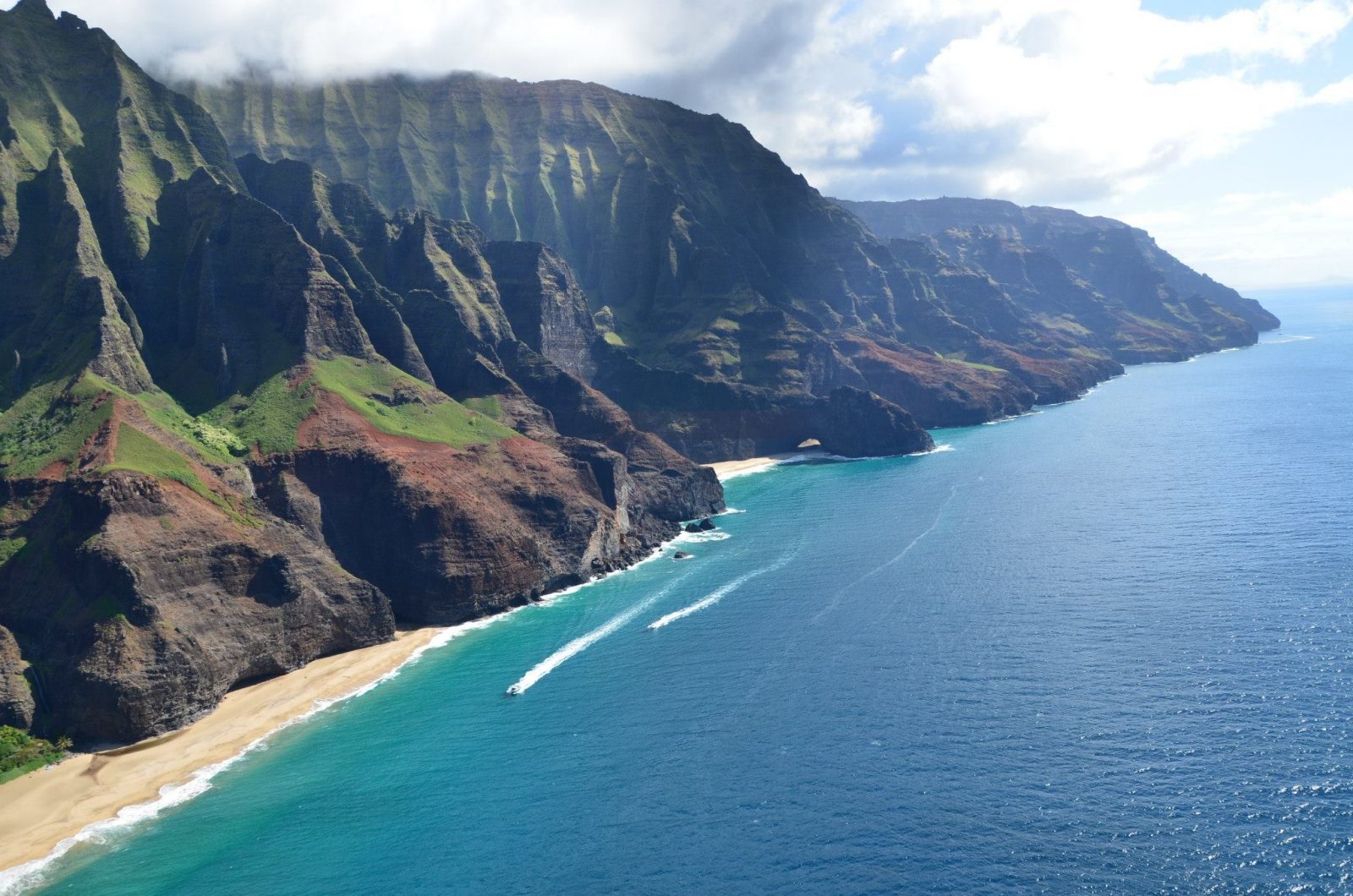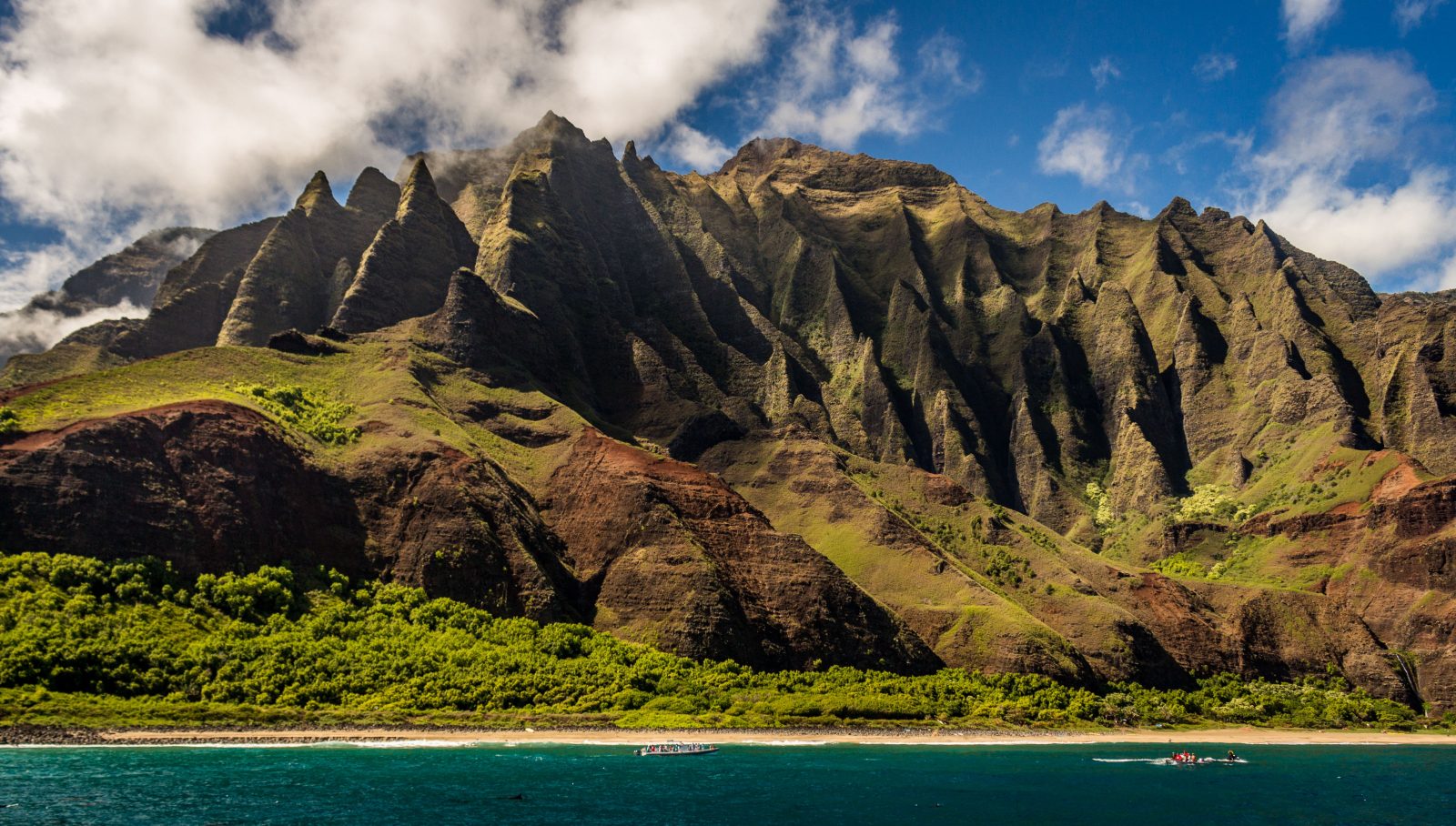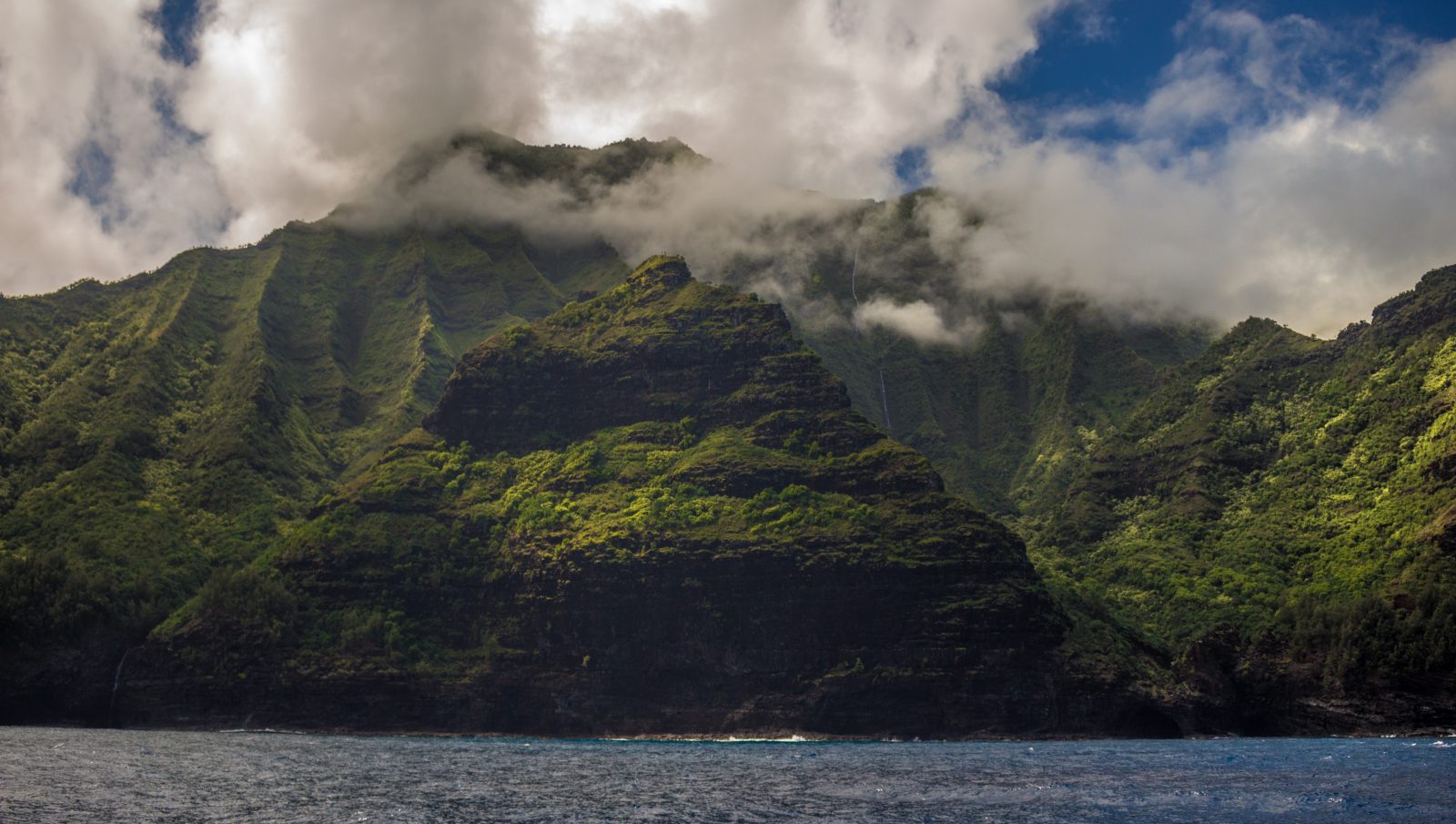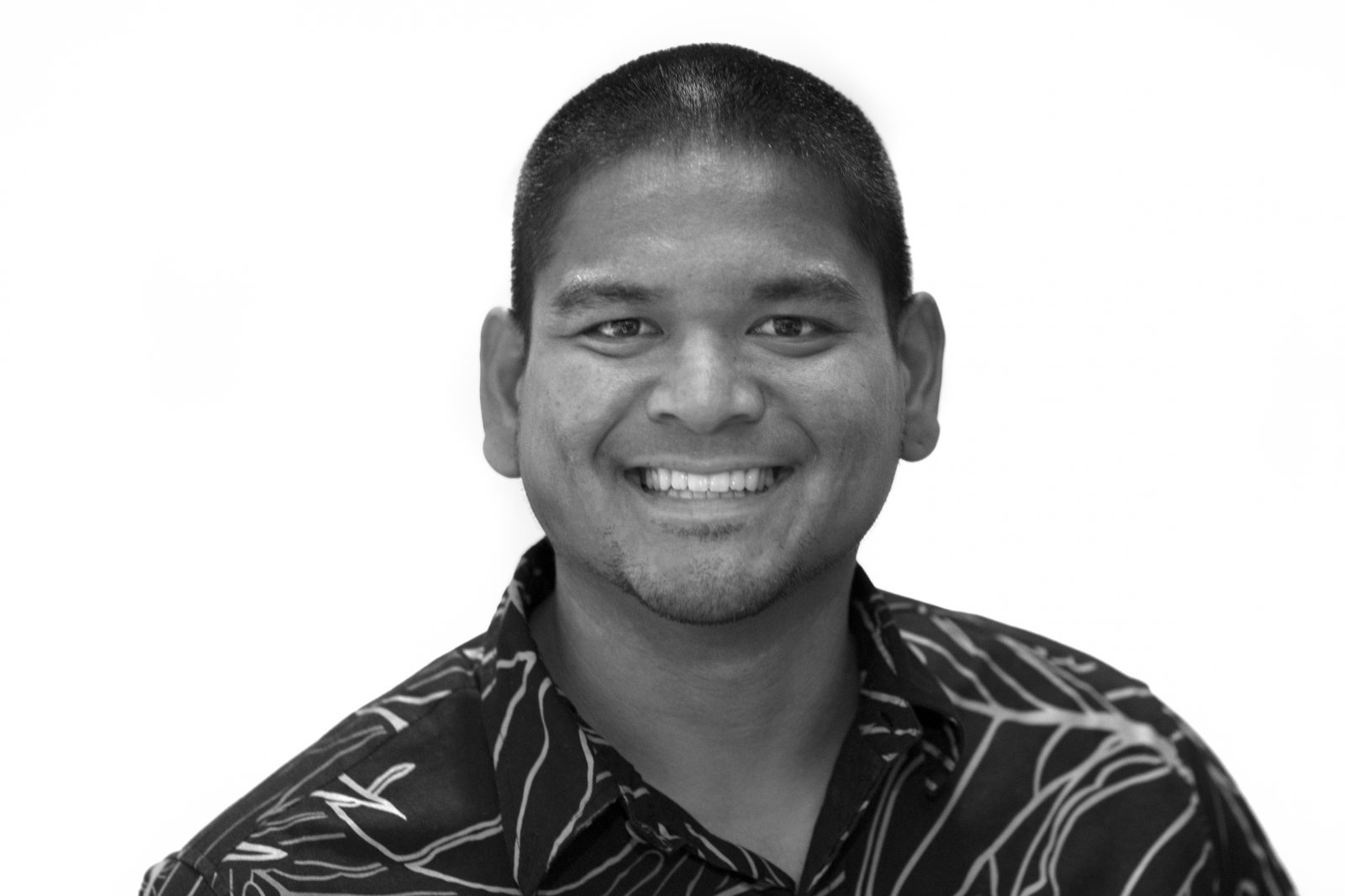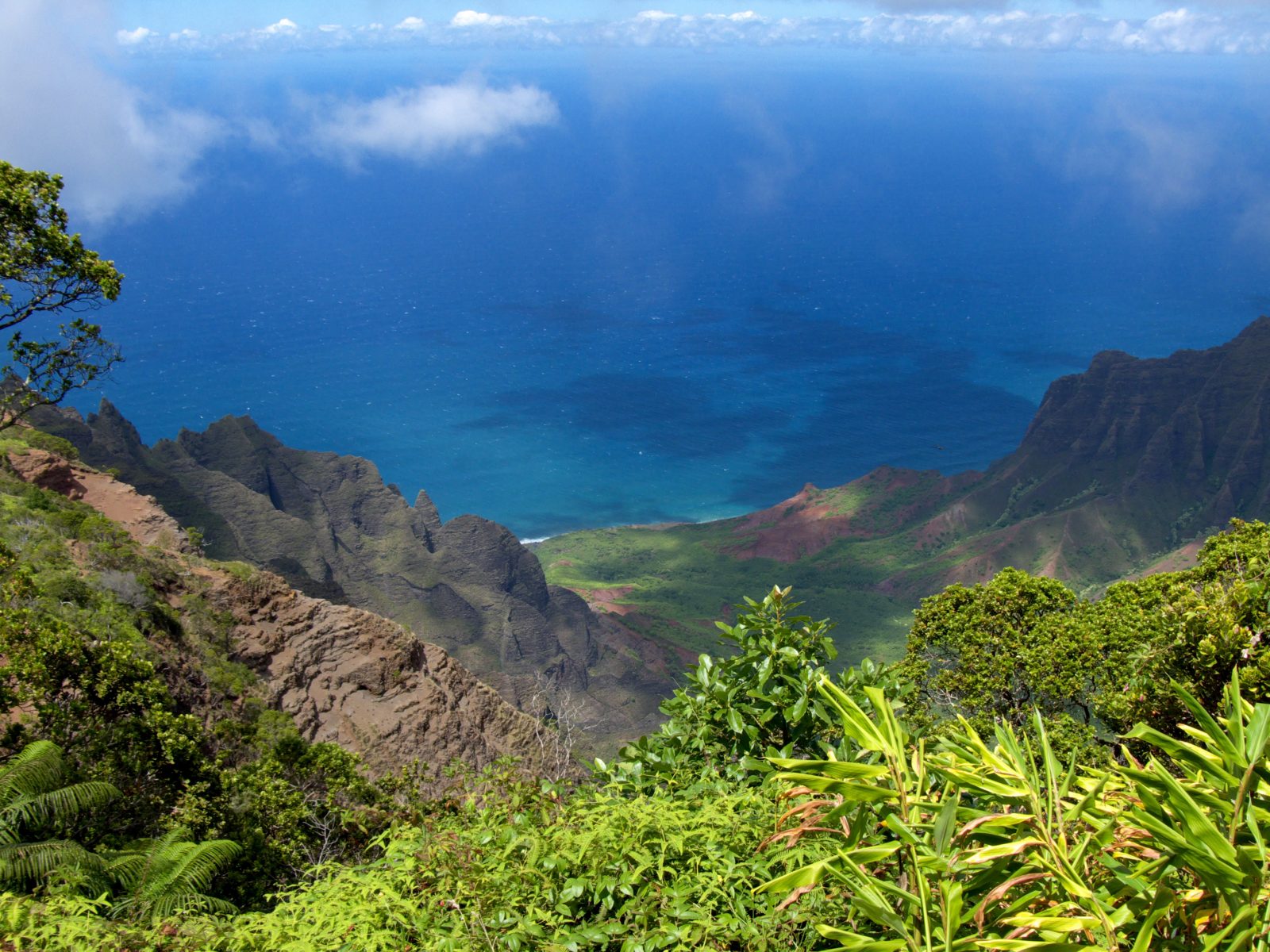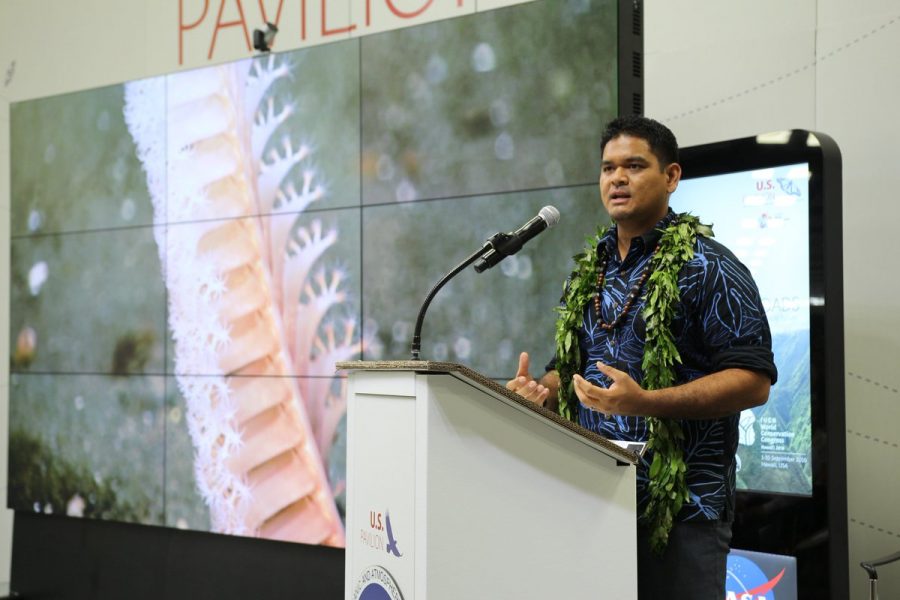You mentioned that you spent many months on the ocean, and earlier the duality of life and death in the ocean. Could you tell us a little bit more about that?
I worked as an observer for three years. An observer is someone who counts fish on commercial fishing vessels and records data on the fish and the by-catch. In Hawaii, by law, all swordfish vessels and 20% of the tuna fishing vessels need to have an observer. The difference stems from the fishing technique: swordfishing sets the hooks really shallow in the water, and some species are really vulnerable to the hooks because they breathe air and are closer to the surface of the ocean, like seabirds, marine mammals and turtles. So they have a chance of becoming by-catch. Tuna on the other hand are really deep in the ocean and seabirds, marine mammals and turtles have less interactions.
The first time I witnessed a shark get decapitated I was sitting on a 5-gallon bucket on the deck of this longline fishing boat. They brought this shortfin mako shark in, lacerated his head off and cut off its fins. The blood was everywhere. I sat on my bucket and I was petrified, I couldn’t move. I thought about my grandparents and what they would think if they knew I had witnessed this. I never told them that I saw that. My stomach was turning and I hid my tears. I know what 30.000 pounds of fish looks like. And that is one boat. I witnessed that for 3 years. At some point I had to become distant from it.
At the same time, I saw all those beautiful things on the ocean. I saw the duality of life and death out there. I have seen whale sharks, Risso’s dolphins and shortfin pilot whales and bioluminescence and you see like 200 albatross following the boat. Or schools of flying fish take flight.
So when you talk about Ocean Witness, I remember that story. Because I feel like I was a witness. I had a moral obligation to do something. I stopped eating tuna for like 1 year and actually I don’t eat it very often. I am using that story to make a positive change. I use it as a drive. That is my positive spin for it.
